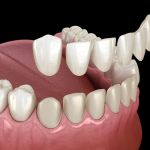- 1-What-is-Dry-Mouth
- 2-Common-Causes-of-Dry-Mouth
- 3-Medications-and-Dry-Mouth
- 4-Health-Conditions-Linked-to-Dry-Mouth
- 5-Lifestyle-Factors-Affecting-Saliva-Production
- 6-Real-Life-Experience-with-Dry-Mouth
- 7-Managing-and-Treating-Dry-Mouth
What is Dry Mouth?
Dry mouth, medically known as xerostomia, occurs when saliva production decreases significantly. Saliva plays an essential role in maintaining oral health by neutralizing acids, aiding digestion, and preventing infections. When saliva flow is reduced, patients may experience discomfort, difficulty swallowing, bad breath, and increased risk of cavities.
Understanding the causes of dry mouth is critical for proper diagnosis and treatment.
Common Causes of Dry Mouth
There are several common causes that lead to dry mouth, including:
- Medications such as antihistamines, antidepressants, and blood pressure drugs
- Medical treatments like radiation therapy to the head and neck
- Autoimmune diseases such as Sjögren’s syndrome
- Dehydration due to insufficient fluid intake or excessive sweating
- Smoking or tobacco use
Each factor impacts saliva production differently, making it important to identify the root cause for effective care.
Medications and Dry Mouth
Many prescription and over-the-counter medications can cause dry mouth as a side effect. Antihistamines, used for allergies, and certain antidepressants reduce saliva secretion. Patients often overlook this connection, leading to prolonged discomfort.
If you suspect your medication is causing dry mouth, consult your healthcare provider. Adjusting dosage or switching drugs may alleviate symptoms.
Health Conditions Linked to Dry Mouth
Dry mouth can also signal underlying health issues. Sjögren’s syndrome, an autoimmune disorder, primarily attacks moisture-producing glands, resulting in chronic xerostomia. Diabetes and Parkinson’s disease are other conditions commonly associated with decreased saliva production.
Early recognition of dry mouth symptoms can prompt medical evaluation to address broader health concerns.
Lifestyle Factors Affecting Saliva Production
Diet, hydration, and habits like smoking impact oral moisture. Excessive caffeine and alcohol intake contribute to dehydration. Mouth breathing, especially during sleep, dries oral tissues. Adjusting lifestyle choices can often improve symptoms significantly.
Real-Life Experience with Dry Mouth
Linda, a patient undergoing chemotherapy, shares how dry mouth affected her quality of life. By working with her dentist and adjusting hydration and oral care routines, she found relief. Linda’s story illustrates the importance of personalized management strategies in overcoming xerostomia.
Managing and Treating Dry Mouth
Effective management of dry mouth involves addressing its cause and using supportive treatments such as saliva substitutes, specialized oral rinses, and maintaining excellent oral hygiene. Regular dental visits are essential to monitor oral health and prevent complications.
For trusted products and advice on managing dry mouth, visit Dentistry Toothtruth to find suitable solutions tailored to your needs.







 Tacoma Dental Care, Dr. Thi Truong Nguyen, DMD.5.0 (29 review)
Tacoma Dental Care, Dr. Thi Truong Nguyen, DMD.5.0 (29 review) Will County Community Health Center2.0 (177 review)
Will County Community Health Center2.0 (177 review) Isabel Correa DDS inc.3.0 (11 review)
Isabel Correa DDS inc.3.0 (11 review) Dr. Joseph V. Esposito, DDS0.0 (0 review)
Dr. Joseph V. Esposito, DDS0.0 (0 review) All Family Dental and Braces4.0 (689 review)
All Family Dental and Braces4.0 (689 review) KK Dental Edison NJ4.0 (396 review)
KK Dental Edison NJ4.0 (396 review) The Importance of Oral Health Education During Pregnancy for a Healthy Pregnancy
The Importance of Oral Health Education During Pregnancy for a Healthy Pregnancy Best Tips for Brushing Your Teeth Properly for Healthy Gums: Essential Techniques for Oral Health
Best Tips for Brushing Your Teeth Properly for Healthy Gums: Essential Techniques for Oral Health Why Skipping Dental Checkups Can Lead to Bigger Oral Health Problems
Why Skipping Dental Checkups Can Lead to Bigger Oral Health Problems Advantages of Porcelain Dental Restorations
Advantages of Porcelain Dental Restorations How Can Diabetes Cause Tooth and Gum Problems? Preventing and Managing Oral Health Issues
How Can Diabetes Cause Tooth and Gum Problems? Preventing and Managing Oral Health Issues Healthy Habits for Promoting Good Oral Health and Hygiene: Tips for a Healthy Smile
Healthy Habits for Promoting Good Oral Health and Hygiene: Tips for a Healthy Smile